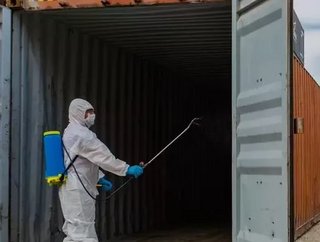DHL: How Supply Chains Have Responded To COVID-19

Since the outbreak of the coronavirus in Wuhan in 2019, the majority of countries around the entire world have experienced national lockdowns, businesses were closed for months, and in many cases are only now reopening, and supply chains experienced severe disruptions to operations.
With no experience in tackling anything like this before, the world couldn’t prepare for the disruptions and damaging shortages of supplies, from the medical industry down to retail and groceries. The UK saw shortages in toilet rolls and other basic necessities, such as pasta, whilst outbreaks in meat processing plants across the US lead to shortages of meat and increased prices across the nation’s grocery stores.
Previous pandemics and natural crises have been effectively managed by smart logistics operations, which have been adaptable and able to move assets between carriers, modify routes, and change capacity with ease, meeting the changing demand efficiently.
However, the COVID-19 pandemic has crippled logistics operations, with suppliers, who are usually the most important players throughout a crisis, unable to meet demands due to being so overwhelmed by a significant, unprecedented amount of pressure.
Air travel was restricted, removing the normal air cargo capacity of the world by up to half. Passenger flights are responsible for a large portion of the material transported around the globe, and the removal of these has added incredible amounts of pressure to supply chain operations. Closures of ports and shortages of labour as workers were forced to remain home also disrupted and reduced the movement of ocean freight significantly.
Labour shortages also disrupted trucking companies, with organisations struggling to fill roles for drivers. Delays on the borders and closures of usual routes also led to severe disruptions for trucking companies. The return to normal operations, whilst it has already begun, will still take time, with lots of assets located in the wrong places, and a desperate need for balance to be restored as soon as possible.
Companies have been forced into thinking on their feet since the pandemic began impacting business. Companies that quickly put together task forces, ensured that communication across the board is quick, easy and efficient, and had the ability to quickly move resources and funds around the business have managed the crisis much better than those who have failed to incorporate any style of a management plan.
With collaborative efforts between organisations to share air charter costs, to switched routes and new transport modes, flexible companies with adaptable strategies and management plans have managed the pandemic better than all.






